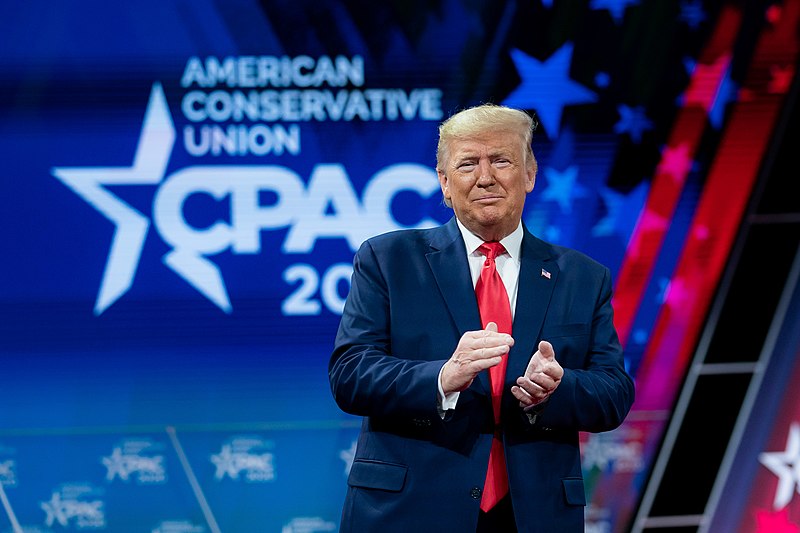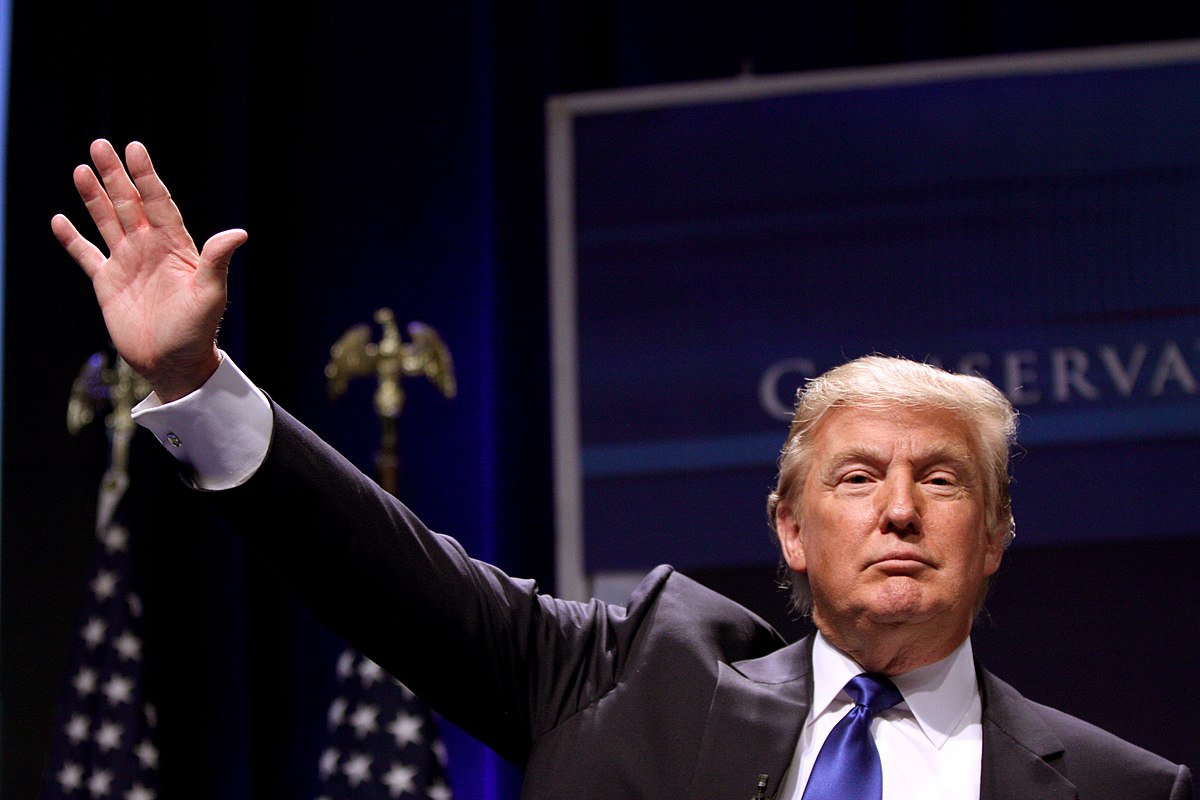- 14 3402-5578
- Rua Hygino Muzy Filho, 737, MARÍLIA - SP
- contato@latinoobservatory.org
 foto: The White House from Washington, DC
foto: The White House from Washington, DC
A growing alliance between far-right Latin American leaders, such as El Salvador’s Nayib Bukele and Argentina's Javier Milei, and the U.S. Republican Party, has been highlighted by the participation of these Latin American leaders at the Conservative Political Action Conference(CPAC). This partnership is seen as strategic both by Latin American leaders, who seek to strengthen ties with potential future U.S. leaders and influence foreign policy, and by Republicans, who see these leaders as an opportunity to reinforce their message of opposition to the left or to governments and leaders considered socialist. It is important to note that CPAC began in 1974 and has historically become an annual gathering of conservatives predominated by the Republican Party which, in recent years, has come to be associated mainly with former President Donald Trump and his far-right followers, being broadcast live for several days.
CPAC’s continued expansion beyond U.S. borders, including conferences in several countries, reflects a strategy of global outreach by the conservative and anti-democratic right that seeks to solidify international alliances to advance a common agenda. The Republican Party is also seeking alliances with the Latin American far right as part of its strategy to appeal to Latino voters in this year's U.S. elections. This approach, which includes supporting well-known leaders among Hispanic voters, is being implemented in different communities, such as Cuban-Americans andVenezuelan-Americans in Florida.
Former Trump adviser Mercedes Schlapp pointed out that Democrats have historically sought the Latino vote, but the Trump administration has also recognized the importance of this electorate, actively seeking their support during the 2020 reelection campaign, according to the Los Angeles Times.
With a population of 2.3 million in the United States, Salvadorans already outnumber Cubans (2.2 million), and both Bukele and Milei emerge as counterpoints to leftist leaders in Latin America. Their presence at CPAC reflects an attempt by the Republican Party to foster ties with Latin American leaders known for their far-right-aligned political stances.
These leaders, as well as Hungary’s Viktor Orbán and Brazil’s Jair Bolsonaro, who have attended the event in previous years, are often described by those as staunch populists who propose radical solutions to problems in their countries. The American right tends to regard these radical proposals as attractive, even if many of them are not feasible or recommendable in the United States. The relationship between some of these leaders and Donald Trump, the potential Republican presidential nominee, has been friendly, with Trump publicly praising both Bukele and Milei. Other conservative politicians, such as Rep. Chip Roy of the Freedom Caucus, praised Milei's proposal for a “limited” government.
The prominent Latin American leaders, Bukele and Milei, are described as “right-wing populist” figures with distinct appeals. Bukele, who has a high approval rating in El Salvador, is praised for his security policies and his fight against gangs, despite criticism of his authoritarian approach. On the other hand, Milei, an economist considered a “populist”, seeks to implement “shock therapy” policies to deal with the economic crisis in Argentina. Regarding the complex relationship between Bukele and the Biden administration, despite criticism of his anti-democratic measures, Bukele has been viewed with sympathy by the U.S. administration due to efforts to curb irregular migration. This dynamic illustrates the complexities of relations between the United States and Latin American leaders, which often involve a combination of strategic interests and concerns for human rights and democracy.
“The union between Republicans and the Latin American right strengthened with the close relationship between then-Brazilian President Jair Bolsonaro and Trump. Bolsonaro, well liked among conservatives in the U.S., spoke at the 2023 CPAC after losing his re-election bid. Trump allies had worked to help Bolsonaro in his 2022 re-election bid, exporting some of Trump’s campaign strategies, including suggestions of voter fraud ahead of the election. [...] Now conservatives have turned their attention to Bukele and Milei”, according to the NBC article.
The relationship between Trump and these leaders is evidenced by symbolic gestures, such as the exchange of compliments and the presence of prominent figures, such as Republican Senator Marco Rubio, who showed his support by autographing a mug with Milei’s campaign slogan. However, Trump's attempt to appeal to the Latino vote is criticized by opponents, such as Maca Casado, a spokeswoman for Biden's campaign, who accuses the former president of adopting anti-immigration policies and demonizing Latinos forpolitical gain.
A phenomenon that is preponderant to the conservative political movements of the extreme right and their extensive adhesion to the population of Latin American countries and among the migrant population in the United States, is the strengthening of religious conservatism and Christian nationalism. We can take as an example, the recent protest of a crowd that gathered via a caravan near the border with Mexico, in Quemado, Texas, to protest President Biden's administration and express concerns about illegal immigration. Attendees used “Trump 2024” flags mixed with Christian flags, highlighting the participants' political and religious alignment. A rally titled “Take Our Border Back” was held and brought together, according to the NBC report, everyone from peaceful Christians to those who advocated more extreme measures against illegal immigration, a theme that was very much on the agenda in the months leading up to this year's election race. Even more recent was Pastor Ed Young’s scathing critique of immigrants in the United States to his congregation of about 18,000 members. On Sunday morning, during a fiery sermon, the longtime pastor of the megachurch, which has six branches in the city, demonized migrants crossing the U.S.-Mexico border. He referred to them as “undesirables”, “garbage”, and “raff”, and added that the United States is “lost through foolishness”.
A survey by the Public Religion ResearchInstitute (PRRI), a nonpartisan and nonprofit organization, reveals that Hispanic Protestants are among the strongest proponents of Christian nationalism, despite the anti-immigration and anti-diversity positions associated with this ideology. While a majority of Americans surveyed reject or are skeptical of Christian nationalism, its influence on the Republican Party is shaping educational, health care, and immigration policies in the United States. The data shows that 55 percent of Hispanic Protestants, mostly evangelicals, hold Christian nationalist beliefs, while 66 percent of white evangelicals share these views, representing the largest share among the groups surveyed. On the other hand, 72 percent of Latino Catholics said they reject or are skeptical of Christian nationalism. The survey also reveals that Republicans are significantly more likely to embrace Christian nationalism compared to independents and Democrats. These Christian nationalists have been strong supporters of Donald Trump, which is evidenced by various polls.
Christian nationalism is characterized by beliefs that uphold the dominance of white American Christianity in all aspects of life in the United States. Many adherents of this ideology want the federal government to declare the United States a Christian nation and move away from secular interpretations of democracy. They staunchly oppose abortion, transgender rights, and religious diversity, seeing it as a threat to their Christian worldview. Right-wing Christian leaders have been active in promoting Christian nationalism, including recruiting Latino evangelical pastors for this ideology. However, many Latino evangelicals may not be aware that they are being indoctrinated with these ideas, as the Axios report noted when it contacted Elizabeth Rios, founder of the South Florida Passion Center. According to the publication, Rios pointed out that many Latinos were discipled in megachurches of mostly white adherents, where Christian nationalism is prevalent. The dichotomy between the traditional Christian message and Christian nationalism highlights a divide within the Christian community, especially among Latinos in the United States.
Despite the anti-immigration rhetoric of conservative leaders and their supporters, a survey by Immigration Research Initiatite presented data that proves that the migrant population in the United States not only contributes to the economy through work, but also increases revenues state and local tax authorities. In the first year, for every 1,000 migrant workers, a $22 million increase in aggregate annual wage and a $2.5 million increase in state and local tax revenues are anticipated. After about five years, those numbers increase to $32 million and $3.6 million, respectively. The long history of immigration in the United States demonstrates that as immigrants settle down and improve their English language skills, they tend to get better jobs and higher wages. This suggests that new immigrants, if given the opportunity, can also progress economically over time. However, despite the favorable indicators for the presence of the migrant population in the country, the Pew ResearchCenter survey shows that most Americans consider the large number of migrants at the border to be a crisis or a major problem. Partisan views on this issue also vary, with Republicans (70%) more likely to describe the situation as a crisis compared to Democrats (22%). The study also examined Americans' concerns about the influx of migrants, including economic burdens and security concerns and “22% of people pointed to the economic burdens associated with the influx of migrants, including the pressures migrants place on social services and other government resources [...] 22% also cite security concerns. Many of these responses focus on crime (10%), terrorism (10%) and drugs (3%)”.
The political landscape is complex, and it has
become important to keep up with emerging political trends in Latin America and
their interaction with the U.S. political landscape, highlighting the growing
influence of the region’s conservative leaders in global politics. The
so-called Christian nationalism can, among other factors, contribute to a
better assessment of conservatism and adhesions to the extreme right by parts
of the Latin American population, including those who migrate to the United
States. The political-ideological dimension of the countries of origin, including the interests of their elites, is
also associated with the problematic of this analysis. While some observers are
enthusiastic about the presence of Latin American far-right leaders at CPAC,
others remain skeptical about the political and diplomatic impacts of these
alliances in an electoral context in the United States, despite having directly influenced the
electoral processes of countries such as Brazil and Argentina.











